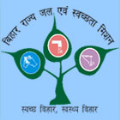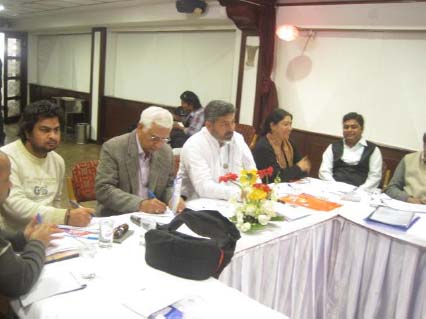Drinking and other Domestic Uses
Impending water crisis in India and comparing clean water standards among developing and developed nations - A overview of the issues surounding India's water scarcity
Posted on 03 Apr, 2012 03:09 PMThe two concepts required for analysis of water as regards human consumption are availability and access. Availability refers to the physical presence of adequate water supplies and is influenced by physical and environmental factors.
Corporatising water: India's draft National Water Policy - A document published by the Institute for Agriculture and Trade Policy
Posted on 21 Mar, 2012 12:17 PMThe document argues that the latest example of this is India’s Draft National Water Policy (NWP) circulated by the Ministry of Water Resources. At first glance, it appears as if the policy has been taking a holistic approach to water resources management, with a clear recognition of India’s water woes.
Thousands of students across India test groundwater for fluoride on March 22, 2012
Posted on 21 Mar, 2012 09:17 AMDraft National Water Policy (2012) fails to take into account the multiple, complex problems and issues relating to water in India says M S Vani
Posted on 18 Mar, 2012 05:49 PMGuest post by: M S Vani
Perusing the draft, one comes across all the ‘right’ concepts, words liberally sprinkled throughout the document, describing the resource:-
- Natural resource
- Hydrological cycle
- Ecological needs of rivers
- Climate change
- Sources pollution
and our intended response to it :-
Status of water supply in in class-I cities and class-II towns of Uttar Pradesh (UP)
Posted on 17 Mar, 2012 10:15 PMSource: Central Pollution Control Board’s 2009-10 Report
Class of cities/towns |
Integrated water management for rural/urban India: Common effluent treatment plant can conserve fresh water in industrial estates
Posted on 17 Mar, 2012 11:02 AMAuthors : Vasudevan Rajaram and John R. Sheaffer
BSWSM invites applications for Hydro-Geologist Consultant, Bihar - Apply by March 22, 2012
Posted on 10 Mar, 2012 09:30 AMContent courtesy: DevNetJobsIndia

Bihar State Water And Sanitation Mission (BSWSM) is the supreme body for implementation of Drinking Water Supply and Sanitation Programme in the State.
Drafting a new National water policy, 2012 without consulting the farmers would be meaningless
Posted on 04 Mar, 2012 11:02 PMAuthor : Phanish Sinha
In India, water problems are 'man made': Comments on the draft water policy-2012
Posted on 29 Feb, 2012 11:02 AMAuthor : Nagesh Hegde
Draft National Water Policy 2012 - Dialogue organised by NEER Foundation, Meerut on February 18, 2012
Posted on 27 Feb, 2012 10:07 AMGuest post by: Raman Kant Tyagi







